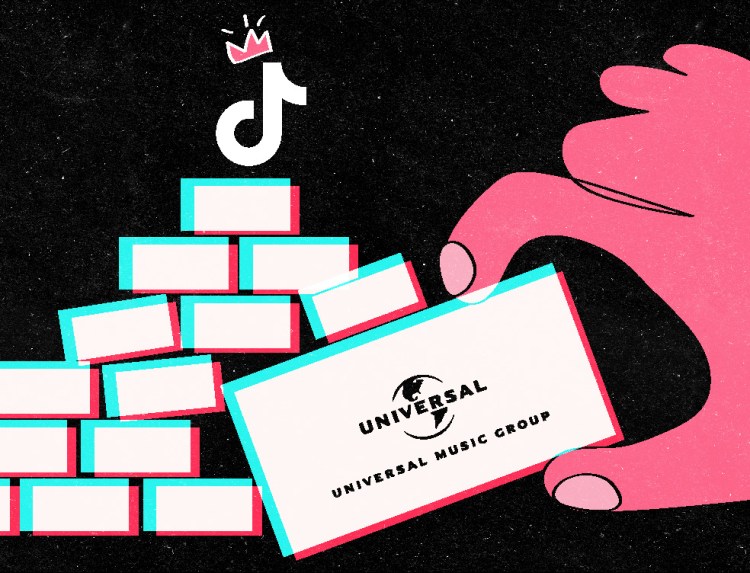
By Julia DeFoe and Emily Perez
Universal Music Group announced the decision to no longer permit its music on the popular social media platform TikTok Jan. 30.
UMG represents several major artists, such as Taylor Swift, Ariana Grande, Bad Bunny, Drake, Olivia Rodrigo, SZA and more. Removing music by these popular artists could mean trouble for overall TikTok usage and analytics.
With the termination of the UMG contract, many TikTok users are put in a tough spot since many viral songs are no longer available to use on the app. This decision resulted in the removal of pop culture’s top hit songs from the world’s leading music platform.
TikTok announced all music represented by the UMG will be pulled from the app and be made unavailable to use moving forward. This decision came as UMG and TikTok reached the final days of their licensing agreement without progress on a renewal.
TikTok was designed for users to select music from a catalog of songs that are made available through the licensing deals that the app has with participating partnerships. According to Pex.com, about 85% of videos posted on TikTok in 2023 contained music.
Universal released a statement explaining its reasoning for the conflict with TikTok. It claims to be pushing the app on three issues: compensation for songwriters and artists, protecting artists from AI and protecting users from hate speech and harassment. In the statement, Universal said the company only makes 1% of its revenue from partnering with TikTok and doesn’t need TikTok to survive.
Universal and TikTok have been at a standstill while continuing to negotiate a new contract. Since the previous contract lapsed Jan. 31, users have been seen dancing on the app without music in an effort to mock the controversy.
Music Department Chair David Kopplin shared his thoughts on what the termination between the two companies would mean overall for TikTok in the long run.
“They’re going to have to come to an agreement with Universal,” Kopplin said. “This feud can go on a long time, but they’ll eventually come to a deal because of customer’s needs and wants, though I’m not sure everyone will get they want.”
Professor In-Hye Kang from the College of Business Administration spoke on how this change could potentially impact the overall success of TikTok moving forward.
She noted it is important to divide the implications into short- and long-term effects. Kang believes in the short term, this change won’t be a huge blow to the app’s success.
“Thinking about this in the long term, I think this will be an issue,” said Kang. “Users may get frustrated because the music that they like and hear from other platforms is not available. Content creators may try to move somewhere (else) because they can’t use TikTok for their promotions.”
Samantha Gomez, a health science student, has already noticed the changes to her “For You” Page on the app.
“It impacted my page as well because half of the videos are gone from all the sound and it looks lifeless,” said Gomez. “The songs that they took out were the main songs that everyone listened to and loved.”
Many hope TikTok and UMG can come to an agreement soon, so consumers can return to enjoying their favorite songs on the app.
Feature image courtesy of Lauren Wong
